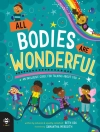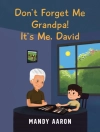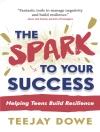A leading text for courses that go beyond the basics of family systems theory, intervention techniques, and diversity, this influential work has now been significantly revised with 65% new material. The volume explores how family relationships—and therapy itself—are profoundly shaped by race, social class, gender, religion, sexual orientation, and other intersecting dimensions of marginalization and privilege. Chapters from leading experts guide the practitioner to challenge assumptions about family health and pathology, understand the psychosocial impact of oppression, and tap into clients’ cultural resources for healing. Practical clinical strategies are interwoven with theoretical insights, case examples, training ideas, and therapists’ reflections on their own cultural and family legacies.
New to This Edition
- Existing chapters have been thoroughly updated and 21 chapters added, expanding the perspectives in the book.
- Reflects over a decade of theoretical and clinical advances and the growing diversity of the United States.
- New sections on re-visioning clinical research, trauma and psychological homelessness, and larger systems.
Содержание
I. Theoretical Perspectives
1. The Power of Naming, Monica Mc Goldrick & Kenneth V. Hardy
2. Re-Visioning Gender, Re-Visioning Power: Equity, Accountability, and Refusing to Silo, Deidre Ashton & Christian Jordal
3. Social Class, Economic Inequality, and the American Dream, Froma Walsh
4. The Sociocultural Trauma of Poverty: Theoretical and Clinical Considerations for Working with Poor Families, Kenneth V. Hardy
5. Spirituality, Suffering, and Resilience, Froma Walsh
II. Sociocultural Trauma and Homelessness
6. Homelessness and the Spiritual Meaning of Home, Monica Mc Goldrick
7. Transnational Journeys, Celia Jaes Falicov
8. Climbing Up the Rough Side of the Mountain: Hope, Culture, and Therapy, Paulette Moore Hines
9. Toward a Psychology of the Oppressed: Understanding the Invisible Wounds of Trauma, Kenneth V. Hardy
III. Racial Identity
10. Native American Identity Transformation: Integrating a Naming Ceremony with Family Therapy, Rockey Robbins & Sharla Robbins
11. Letting My Spirits Guide Me: Multicultural and Multiracial Legacies, Nydia Garcia Preto
12. Moving toward Multiracial Legitimacy: A Personal Reflection, Mary Anna Domokos-Cheng Ham
13. On Being a Black Dominican, Ana M. Hernandez
14. Facing the Black Shadow: Power from the Inside Out, Marlene F. Watson
15. White Privilege and Male Privilege: A Personal Account of Coming to See Correspondences through Work in Women’s Studies, Peggy Mc Intosh
16. Dismantling White Male Privilege within Family Therapy, Ken Dolan-Del Vecchio
17. The Inevitable Whiteness of Being (White): Whiteness and Intersectionality in Family Therapy Practice and Training, Jodie Kliman, Hinda Winawer, & David Trimble
18. Brown in America: Living with Racial and Religious Bias, Kiran Shahreen Kaur Arora
IV. Cultural Legacies and Stories: Therapists’ Experiences
19. Black Genealogy Revisited: Restorying an African American Family, Elaine Pinderhughes
20. White Privilege, Pathological Shame and Guilt, and the Perversion of Morality, Robert Shelby
21. The Discovery of My Multicultural Identity, Fernando Colón-López
22. Going Home: One Orphan’s Journey from Chicago to Poland and Back, John Folwarski
23. Hyperlinked Identity: A Generative Resource in a Divisive World, Saliha Bava
24. The Semitism Schism, Revisited: Jewish–Palestinian Legacies in a Family Therapy Training Context, Linda Stone Fish & Donna Dallal-Ferne
25. No Single-Issue Lives: Identity Transitions and Transformations across the Life Cycle, Elijah C. Nealy
V. Implications for Clinical Practice
26. Working with LGBT Families, Elijah C. Nealy
27. Same-Sex Couples: Successful Coping with Minority Stress, Robert-Jay Green
28. Working with Immigrant and Refugee Families, Hugo Kamya & Marsha Pravder Mirkin
29. Therapy with Heterosexual Black Couples through a Racial Lens, Kenneth V. Hardy & Christiana I. Awosan
30. A Fifth-Province Approach to Intracultural Issues in an Irish Context: Marginal Illuminations, Imelda Colgan Mc Carthy & Nollaig O’Reilly Byrne
31. The Power of Song to Promote Healing, Hope, and Justice: Lessons from the African American Experience, Salome Raheim
32. Interracial Asian Couples: Beyond Black and White, Tazuko Shibusawa
VI. Implications for Training
33. Re-Visioning Family Therapy Training, Kenneth V. Hardy & Monica Mc Goldrick
34. Social Justice in Family Therapy Training: The Power of Personal and Family Narratives, Matthew R. Mock
35. Teaching about Racism and the Implications for Practice, Norma Akamatsu
36. A Letter to Family Therapists in the 21st Century, Evan Imber-Black
VII. Implications of Research for Clinical Practice
37. Ways of Knowing: Cultural Bias Pitfalls to Avoid When Using Research to Inform Practice, Sarita Kaya Davis
38. Relational Healing and Organizational Change in the Time of Evidence, Ken Epstein
VIII. Larger Systems Work: How to Build Bridges Across The Divide
39. Expanding Bowen’s Concept of Societal Emotional Processes through Historic Ethnography: An Anthropological Exploration of the Human Connection with the Environment, Joanne Bowen
40. An Application of Bowen Family Systems Theory in Child Welfare, Walter Howard Smith, Jr.
Index
Об авторе
Monica Mc Goldrick, LCSW, Ph D (h.c.), is Director of the Multicultural Family Institute in Highland Park, New Jersey, and Adjunct Associate Professor of Clinical Psychiatry at Rutgers Robert Wood Johnson Medical School. Her videos on clinical work with diverse families are among the most widely respected in the field. Her numerous books include Ethnicity and Family Therapy, Third Edition, and Re-Visioning Family Therapy, Third Edition. Ms. Mc Goldrick is a recipient of the Distinguished Contribution to Family Therapy Theory and Practice Award from the American Family Therapy Academy. An internationally known author, she has lectured around the world on such topics as culture, class, gender, the family life cycle, and loss.
Kenneth V. Hardy, Ph D, is Professor of Family Therapy at Drexel University in Philadelphia and Director of the Eikenberg Institute for Relationships in New York City. He is also President and Founder of the Eikenberg Academy of Social Justice. Dr. Hardy is a recipient of honors including the Distinguished Contribution to Marriage and Family Counseling Award from the International Association for Marriage and Family Counselors and the Distinguished Contribution to Social Justice Award from the American Family Therapy Academy. He maintains a private practice in New York City specializing in family therapy.












